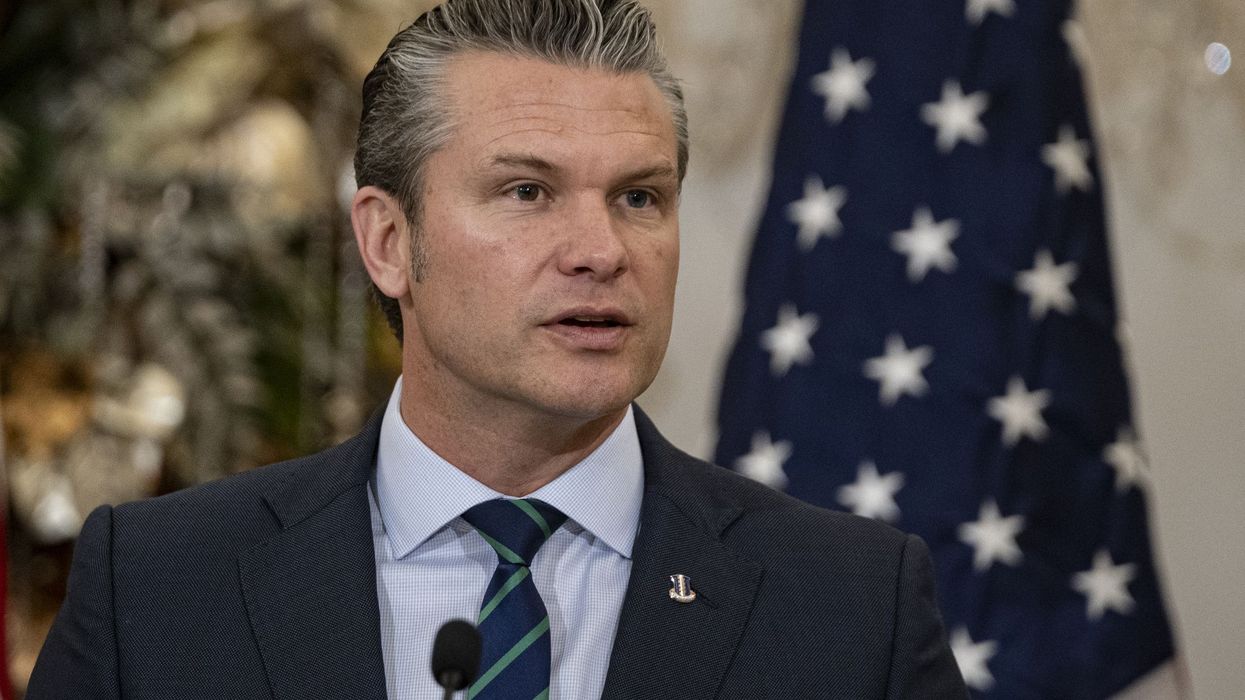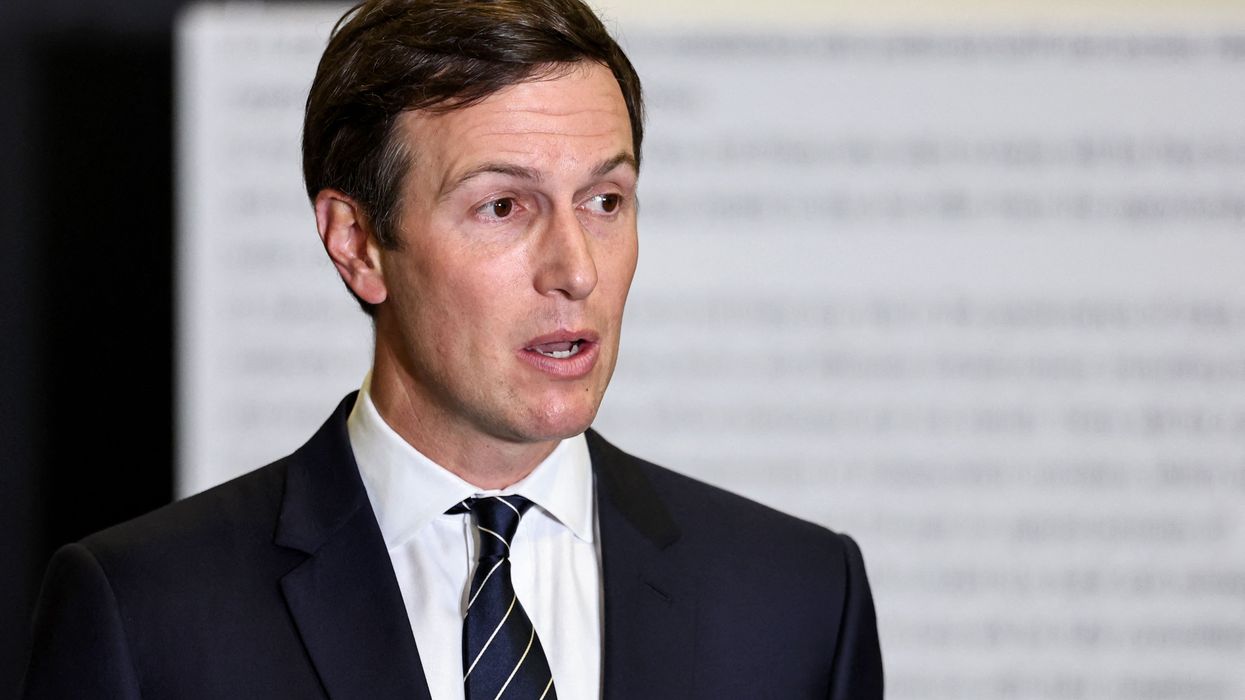December, 05 2008, 07:18am EDT
Leading Zimbabwe Human Rights Activist Abducted
WASHINGTON
Africa Action is concerned about the whereabouts and safety of
coalition partner Jestina Mukoko, a prominent civil society leader in
Zimbabwe, reportedly missing for over forty-eight hours. As the
Director of the Zimbabwe Peace Project, Jestina has been instrumental
in keeping the world informed of human rights abuses in Zimbabwe.
Africa Action unequivocally condemns this attempt to silence this
heroine of Zimbabwe's struggle for democracy and demands that she be
released immediately and returned to her family unharmed. Jestina's
abduction follows a clear pattern consistent with previous abductions
by government agents, particularly the Central Intelligence
Organization. Africa Action urges the international community to hold
authorities responsible for Jestina's well being.
The abduction of Jestina Mukoko follows a protest organized by the
Zimbabwe Congress of Trade Unions (ZCTU) that was brutally crushed by
police. Over seventy workers were arrested throughout Zimbabwe and many
more were severely beaten by anti-riot police, including ZCTU secretary
general Wellington Chibhebhe. "These were workers simply exercising
their democratic right to protest peacefully. The Zimbabwe government
had no reason to violently attack them," said Gerald LeMelle, Executive
Director of Africa Action. "Africa Action extends our solidarity with
the struggling workers of Zimbabwe and demands the immediate release of
those arrested. Those members of the security forces responsible for
these human rights abuses must be held responsible. Zimbabwe's culture
of government impunity cannot be allowed to continue. We hope that our
dear sister Jestina is released quickly and unharmed."
The escalation of human rights abuses in Zimbabwe comes amid an
exploding cholera epidemic that has affected nine out of the country's
ten provinces. More than 600 people have died, and over 13,000 are
infected. Many residents of the capitol city Harare have gone without
running water for months. Amid severe food shortages, more than 2
million people are relying on handouts from donors to survive.
Zimbabwe's humanitarian situation is exacerbated by the lack of an
effective government that has persisted since contested presidential
elections were held in March. President Robert Mugabe's administration
continues to undermine the proposed unity government by refusing to
share power equitably with the opposition Movement for Democratic
Change (MDC).
To learn more about the crisis in Zimbabwe or read Africa Action's report A Dream Deferred - the 2008 Zimbabwe Elections visit https://www.africaaction.org.
Africa Action is a national organization that works for political, economic and social justice in Africa. Through the provision of accessible information and analysis combined with the mobilization of public pressure we work to change the policies and policy-making processes of U.S. and multinational institutions toward Africa. The work of Africa Action is grounded in the history and purpose of its predecessor organizations, the American Committee on Africa (ACOA), The Africa Fund, and the Africa Policy Information Center (APIC), which have fought for freedom and justice in Africa since 1953. Continuing this tradition, Africa Action seeks to re-shape U.S. policy toward African countries.
LATEST NEWS
Hegseth Says Pentagon Project Will Put Artificial Intelligence 'Into the Hands of Every American Warrior'
The new website, GenAI.mil, describes the "end state" of the project as "a Joint Force where generative AI is fully integrated as a native capability into every aspect of operations."
Dec 09, 2025
US Defense Secretary Pete Hegseth, currently under fire for treating a deadly ongoing US military operation against alleged drug traffickers in the Caribbean "like it's a video game," as one columnist said this week, announced on Tuesday that the Pentagon is launching an artificial intelligence platform for service members to use on the proverbial battlefield.
"We are unleashing GenAI.mil," said Hegseth in a video address on the Department of Defense's (DOD) embrace of AI. "This platform puts the world's most powerful frontier AI models, starting with Google Gemini, directly into the hands of every American warrior."
Hegseth, who has claimed the DOD is now called the Department of War, said that "at the click of a button," service members can "conduct deep research, format documents, and even analyze video or imagery at unprecedented speed."
"We will continue to aggressively field the world's best technology to make our fighting force more lethal than ever before," added Hegseth.
Pete Hegseth: "The future of American warfare is here, and it's spelled AI."
He says the military has launched a new platform that "puts the world's most powerful frontier AI models, starting with Google Gemini, directly into the hands of every American warrior." pic.twitter.com/phva2cnIc9
— More Perfect Union (@MorePerfectUS) December 9, 2025
Jessica Burbank and Drop Site News reported that the custom-made Google AI tool, Gemini, is now available to all military personnel, civilians, and contractors, and includes extensions to tools including ChatGPT, AI assistant Claude, and Grok.
The Trump administration awarded Google a $200 million contract in July to develop AI at the DOD.
"Victory belongs to those who embrace real innovation," Hegseth wrote in a memo obtained by Burbank. "GenAI.mil is part of this monumental transformation... I expect every member of the department to log in, learn it, and incorporate it into your workflows immediately. AI should be in your battle rhythm every single day."
DOD employees have been given a "Do and Don't" list, according to Burbank.
A Pentagon source told Burbank that an “example of 'don’t' was, 'Don’t use GenAI for decisions involving attribution, targeting, or threat evaluation without human validation.'"
"I read that as someone can read what the AI said and be like, 'Yep it’s good to go shoot that missile,'" added the source. “They are legit going full force into AI."
GenAI.mil also describes the "end state" that the Pentagon is working toward as "a Joint Force where generative AI is fully integrated as a native capability into every aspect of operations."
"Our warriors and leaders will leverage AI to achieve unparalleled situational awareness, accelerate planning cycles, and execute operations with a speed and precision that yields information dominance and mission success," reads the platform.
The launch of Google Gemini comes after Emil Michael, the defense undersecretary for research and engineering, took control of the Defense Innovation Unit, the Chief Digital and Artificial Intelligence Office (CDAO), and other offices in an effort to accelerate the expansion of AI use in the military.
Between Russia and Ukraine, Michael said, "You have a robot-on-robot frontline now, which we've never seen before."
“The explosion of capabilities has been enormous, and we're just catching up to that,” he added. “Now we can take CDAO and actually try to use it to push the capability into the department for actual use cases.”
Drop Site co-founder Ryan Grim commented that Tuesday's announcement points to "Hegseth ushering in the apocalypse."
The launch of GenAI.mil comes as the Trump administration continues to escalate tensions with Venezuela, with President Donald Trump signaling that the US could soon launch land strikes in the South American country and elsewhere in Latin America.
Keep ReadingShow Less
'Attack on Independent Science': Trump EPA Removes All Mention of Human-Caused Climate Crisis From Public Webpages
Climate scientist Daniel Swain called it "a deliberate effort to misinform."
Dec 09, 2025
The Trump administration has removed all references to human-caused climate change from Environmental Protection Agency webpages, as well as large amounts of data showing the dramatic warming of the climate over recent decades and the resulting risks.
According to a Tuesday report from the Washington Post, one page on the "Causes of Climate Change" stated as recently as October that "it is unequivocal that human influence has warmed the atmosphere, ocean, and land," a statement that reflects the overwhelming consensus in peer-reviewed literature on climate.
That statement is now nowhere to be found, with those that remain only mentioning "natural" causes of planetary warming like volcanic activity and variations in solar activity.
"The new, near-exclusive emphasis on natural causes of climate change on the EPA's website is now completely out of sync with all available evidence demonstrating overwhelming human influence on contemporary warming trends," explained Daniel Swain, a climate scientist at the University of California Agriculture and Natural Resources, who posted about the changes on social media.
The Intergovernmental Panel on Climate Change (IPCC), which examines tens of thousands of studies from around the globe, found that virtually all warming since the dawn of the industrial era can be attributed to human carbon emissions.
This can be confirmed using the Wayback Machine's last snapshot (from Oct 8, 2025). At some point between Oct 8 & Dec 8, major changes were made to this and other EPA climate change content. Information has either been removed completely or "adjusted" to emphasize natural causes.
[image or embed]
— Daniel Swain (@weatherwest.bsky.social) December 8, 2025 at 12:50 PM
Pages about the catastrophic results of climate change have also been scrubbed: One of them allowed users to view several climate change indicators, like the historic decline of Arctic sea ice and glaciers and the increased rates of coastal flooding due to rising sea levels. That page has been deleted entirely.
Another page, which answered frequently asked questions about climate change, now no longer includes questions like, "Is there scientific consensus that human activities are causing today’s climate change?” "How can people reduce the risks of climate change?" and "Who is most at risk from the impacts of climate change?" The page provides no indication that climate change is a human-caused phenomenon, instead only discussing natural factors.
That page links to another that has since been deleted. It once provided extensive information about the risks climate change poses to human health, "from increasing the risk of extreme heat events and heavy storms to increasing the risk of asthma attacks and changing the spread of certain diseases carried by ticks and mosquitoes." Another deleted page discussed the impacts of climate change on children's health and low-income populations.
“This is, I think, one of the more dramatic scrubbings we’ve seen so far in the climate space,” said Swain. "This website is now completely incorrect regarding the changes in climate that we’re seeing today and their causes... It’s clearly a deliberate effort to misinform.”
During his 2024 campaign for reelection, President Donald Trump and his affiliated super political action committees received more than $96 million in direct contributions from oil and gas industry donors, according to a January report from Climate Power. Since retaking office, he has moved to dramatically expand the extraction and use of planet-heating fossil fuels while eliminating investment in clean energy and electric vehicles.
Rachel Cleetus, senior policy director for the Climate and Energy Program at the Union of Concerned Scientists, said, "Deleting and distorting this scientific information only serves to give a free pass to fossil fuel polluters who are raking in profits even as communities reel from extreme heatwaves, record-breaking floods, intensified storms, and catastrophic wildfires."
Cleetus said that the purging of climate information from EPA sites was a prelude to "the likely overturning of the endangerment finding, a legal and scientific foundation for standards to limit the heat-trapping emissions driving climate change and threatening human health."
In July, EPA Administrator Lee Zeldin unveiled a proposal to rescind the 2009 finding, which determined that climate change endangers human life and serves as the legal basis for greenhouse gas regulations under the Clean Air Act.
Undermining climate science is core to that effort, which Andrew Dessler, a climate scientist at Texas A&M, said at the time, "could unravel virtually every US climate regulation on the books, from car emissions standards to power plant rules.”
Shortly after Zeldin announced the rule change, the Department of Energy cobbled together a “Climate Working Group” comprising five authors handpicked by Secretary Chris Wright to produce a climate report that disputes the IPCC's findings and the scientific consensus on climate change.
The report did not undergo peer review and omitted around 99% of the scientific literature the IPCC relied on for its comprehensive findings. A group of climate scientists that independently reviewed the paper found that it “exhibits pervasive problems with misrepresentation and selective citation of the scientific literature, cherry-picking of data, and faulty or absent statistics.”
Cleetus said Tuesday that “EPA is trying to bury the evidence on human-caused climate change, but it cannot change the reality of climate science or the harsh toll climate impacts are taking on people’s lives... This isn’t just about data on a website; it’s an attack on independent science and scientific integrity.”
Keep ReadingShow Less
Kushner Role in Paramount Scheme Shows US 'Devolving Into Caricature of Crony Capitalism'
"The Warner Bros. merger was already suspect, but now Trump’s family is getting in on the act," said one Democratic senator.
Dec 09, 2025
The revelation that Jared Kushner, US President Donald Trump's son-in-law, is playing a key role in Paramount Skydance's hostile bid for Warner Bros. Discovery underscores the extent to which the current administration's open corruption "is fundamentally distorting economic and governmental policymaking at the direct expense of the interests of the American people," a watchdog group said Tuesday.
Kushner's private equity firm, Affinity Partner, is listed in a regulatory filing as one of the organizations financing Paramount's $108 billion bid for Warner Bros., which owns CNN. Ethics experts say Kushner's involvement represents another glaring conflict of interest on top of preexisting concerns about the bid, stemming from Trump's relationship with Paramount CEO David Ellison and his billionaire father, GOP megadonor Larry Ellison.
"America is devolving into a caricature of crony capitalism," Robert Weissman, co-president of Public Citizen, said in a statement Tuesday. "Factions aiming to shrink media competition are fighting over who can show the greatest fealty to Donald Trump. Paramount seems to have won the prize, bringing in presidential son-in-law Jared Kushner—whose investment vehicle is flush with Saudi funds, deposited only because of his personal relationship with Donald Trump—as a partner."
"A working antitrust policy would block the merger of Warner Bros. Discovery with one of the existing media goliaths. It would never be influenced by personal connections to the president," Weissman added. "This case underscores that the corruption pervading the Trump administration isn’t just about making Trump and his family and hangers-on ever richer. That corruption is fundamentally distorting economic and governmental policy making, at the direct expense of the interests of the American people.”
Sen. Chris Van Hollen (D-Md.) said that "the Warner Bros. merger was already suspect, but now Trump’s family is getting in on the act."
"Paramount already had deep ties to the White House," he added, "now Trump's family will directly profit if they win."
Asked Monday about Kushner's financing role, Trump said he has "never spoken to him about it."
Paramount, which the Trump administration reportedly favored to take over Warner Bros., announced its bid for the company days after the streaming behemoth Netflix and Warner Bros. leadership reached an $83 billion acquisition deal. The president immediately criticized the Netflix agreement and pledged to intervene in the federal review process.
"The blurred line between running the government and the family's business interests is expanding each day," Scott Amey, general counsel with the Project On Government Oversight, told Reuters.
Antitrust experts and advocates have argued that both of the proposed mergers are likely illegal and should be blocked.
Matt Stoller, research director at the American Economic Liberties Project, said Monday that either merger "would further deepen the media consolidation crisis that is eroding our creative economy and freedom of expression."
"Paramount specifically would be well-positioned to manipulate the news to please the president, which David Ellison made clear it intends to do in an interview earlier today," said Stoller. "There is a reason that policymakers and workers in Hollywood have come out against each iteration of this deal. Rather than allowing further consolidation in the industry, policymakers must reregulate the market with prohibitions on vertical integration.”
Keep ReadingShow Less
Most Popular


